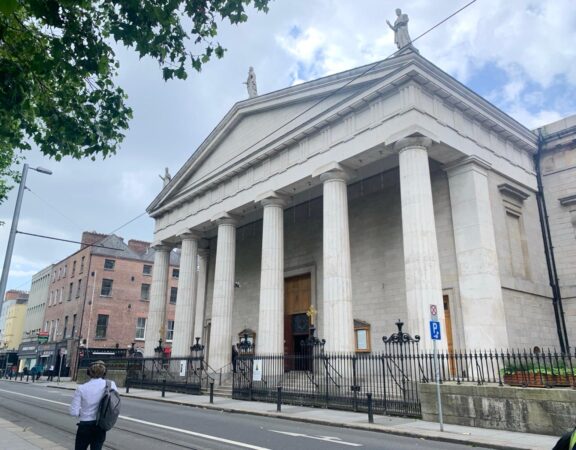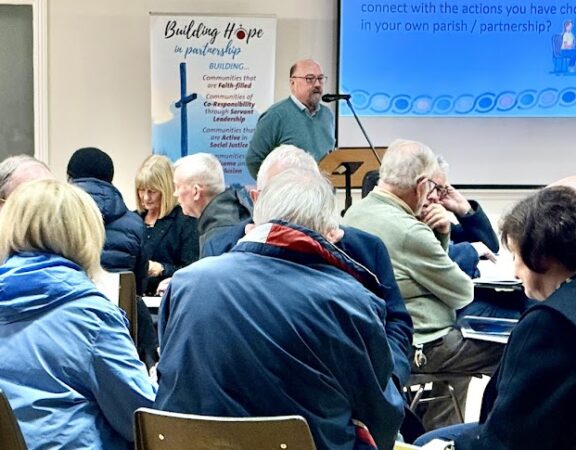Book LaunchWHO IS MY NEIGHBOUR?
Remarks of
Most Rev. Diarmuid MartinArchbishop of Dublin and Primate of Ireland
———–
Veritas House, Dublin, 12
th June 2009
There were many who expressed a certain surprise that Pope Benedict XVI chose to write his first Encyclical Letter on the love of God: Deus Caritas Est. It seemed to some, I think, a subject which is so fundamental about Christian revelation that there should be little need to remind us of that. To others, it was so fundamental that it would not offer the possibility of the sort of intellectual interaction with the realities of Church life and the life of society that one would expect in an Encyclical. God’s love, they would say if I interpret them correctly, would be more the material for a homily than an Encyclical. Others would have felt that, in the divided world in which we live today, the Church and the world needed to be reminded of the demands of justice rather than hear an exhortation to love.
The Book Who is my neighbour?, edited by Father Eoin Cassidy, shows through the papers delivered at a Conference of the Irish Episcopal Commission for Justice and Social Affairs, just how rich the context of the Encyclical was and how it could be applied to many aspects of the way we shape our society and the way the Church is present in that society.
The various papers take up the underlying themes of the Encyclical in the framework of the concrete work of the Church in different settings. The papers do not shy away from the questioning which the Encyclical gave rise to, a series of themes like the relationship between love of God and love of neighbour, the relationship between charity and justice, the relationship between faith and reason, the role of politics as opposed to the contribution of the Church in the building of a just society.
The Encyclical had looked at the centrality of the call to love in the Christian life:
“Love of neighbour, grounded in the love of God, is first and foremost a responsibility for each individual member of the faithful…”
Love is presented not just as something for the relations of the individual:
“[Love] is also a responsibility for the entire ecclesial community at every level: from the local community to the particular Church and to the Church universal in its entirety. As a community, the Church must practice love… Love thus needs to be organized if it is to be an ordered service to the community”.
The Encyclical looks at the manner in which the Christian faith does not supplant the essential role of reason. But it adds that:
“if reason is to be exercised properly, it must undergo constant purification, since it can never be completely free of the danger of a certain ethical blindness caused by the dazzling effect of power and special interests”.
The Christian presence within society must be one that brings the dimension of faith in a God of love as a force for the purification of reason and the purification of the type of presence which Christian faith should bring to the quality of the care that Church structures should bring to their work:
“Those who work for the Church’s charitable organizations must be distinguished by the fact that they do not merely meet the needs of the moment, but they dedicate themselves to others with heartfelt concern, enabling them to experience the richness of their humanity”.
This distinctiveness must be present also in the way in which Christians in society are trained for the tasks they have to face:
Consequently, in addition to their necessary professional training, these charity workers need a “formation of the heart”: they need to be led to that encounter with God in Christ which awakens their love and opens their spirits to others”
This is not a sort of culture of self determined superiority which Christian organisations would feel about their activities in the areas of providing services or in animating public debate. It is firstly of all a radical call to conversion.
In this light, we cannot but address those comments which have emerged around the recent Ryan Report on the abuse of children in Church run institutions, which raise the question of how such institutions had in many respects drifted away from the very essence of the Christian presence, “the love of God”. There are questions to be asked regarding how much Irish devotional practice had drifted away from the fundamental fact that God is love. We have to ask to what extent the punitive and humiliating culture which seems to have developed in some such institutions was due to the fact that we had drifted away from the God who is love into one inspired by a punitive, judgemental God; a God whose love was the love of harsh parents, where punishment became the primary instrument of love.
The path to goodness cannot be beaten into you; conversion can only be solicited from with the goodness that is within people through experiencing the gift of love. Perhaps some of those who now stand judged for having failed in love were victims of a form of Catholicism which never allowed them themselves to experience being loved.
The challenge for the Church in Ireland now is to begin a process of self-examination and discernment about how far our style of Christian living really witnesses to that that sense of God being love, a process of repentance, conversion and renewal.
That will not be the task of facilitated group meetings and analysis alone, but through ourselves opening our minds and our hearts to that great joy that comes when we experience what God’s liberating love brings to our lives and witnessing how the power of God’s self -giving love can change lives radically into be self-giving, sel- less, free persons who can embrace neighbour in whatever form we encounter it.
That process of conversion means changing our whole vision of what it is to be a Christian. We need to recall what is said in one of the most quoted phrases of Deus Caritas Est: “Being Christian is not the result of an ethical choice or a lofty idea, but the encounter with an event, a person, [Jesus Christ], which gives life a new horizon and a decisive direction”.







